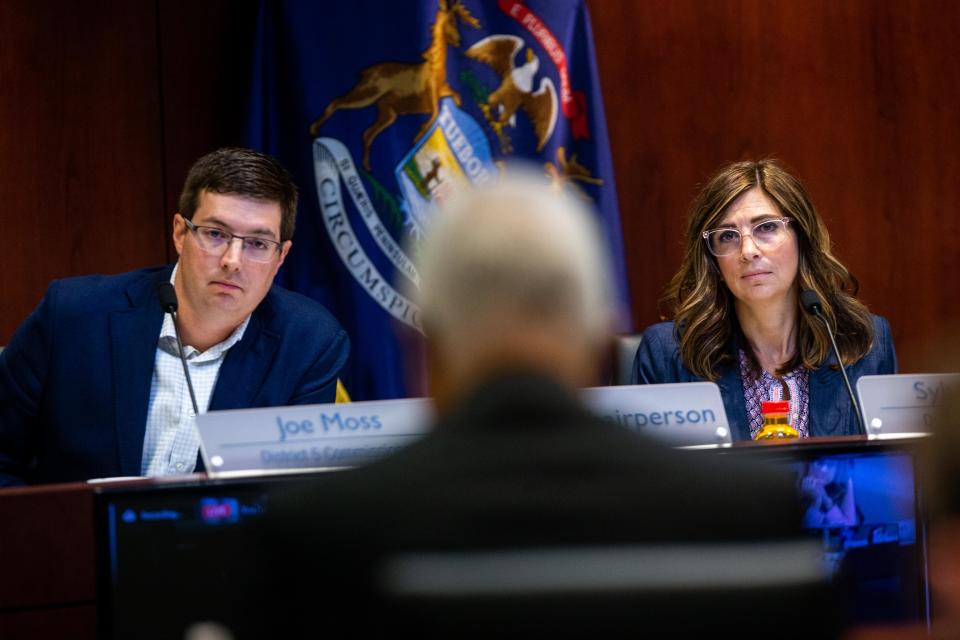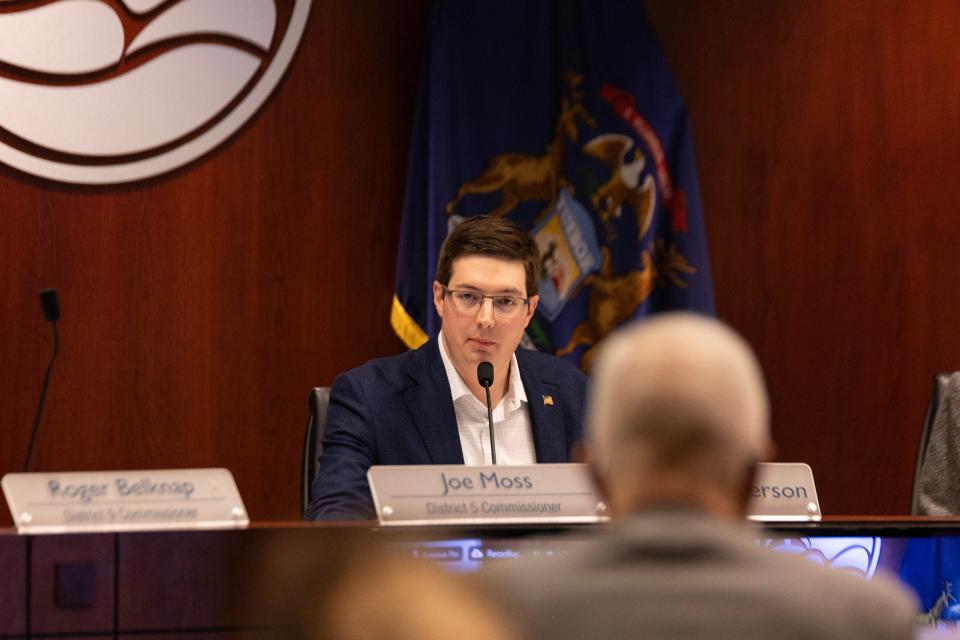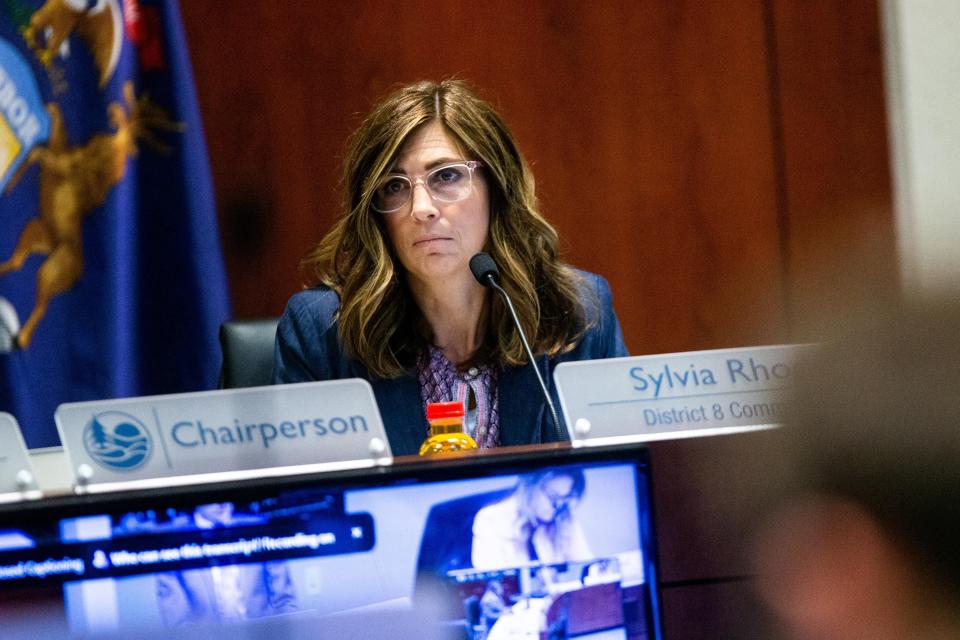'If it ain't broke': Does Ottawa County need to privatize well and septic inspections?
OTTAWA COUNTY — Ottawa County commissioners plan to form a work group to evaluate time-of-sale well and septic inspections and whether they should be, at least in part, privatized.
The idea was pitched publicly earlier this month during a finance and administration committee meeting, when Spencer Ballard and Drew Shaw from the Ottawa County Department of Public Health spoke to commissioners about a new staff member needed to help process well and septic applications and licenses.
More: ‘Unfortunate how it’s devolved’: Ottawa Food sparks tense debate between board, health officials
At that meeting, Commissioner Joe Moss indicated a desire to open time-of-sale inspections to private inspectors (they're currently only done by the county). Moss claimed he’s received complaints from local realtors about delays in the process.

Local experts disagree.
Commissioners resumed discussions during a health and human services committee meeting Tuesday, March 19. During the meeting, Kevin Hoeve — a Holland realtor who serves on the West Michigan Lakeshore Association of Realtors — spoke highly of the current system. He said representatives from WMLAR and Health Officer Adeline Hambley have previously spoken about the success of the collaboration.
“For some 40 years, Ottawa County has had a workable program that we believe is an exemplary model because it simply works,” Hoeve said. “If it ain’t broke, don’t fix it.”
He added privatizing inspections could lead to unintended consequences.
During her monthly report to the board, Hambley said the current system began in 1984 at the request of realtors seeking a neutral body to conduct inspections.
Hambley said there are three potential routes for the county — leave the system as is, open point-of-sale inspections to private inspectors, or have private inspectors handle all inspections.
One potential issue, Hambley said, is giving private inspectors access to permit and inspection history documents. They would have to be requested for every inspection or be made public, which Hambley said would likely not be appreciated by residents.
In discussions, Moss said the feedback from Hambley and Hoeve was helpful and said it “sounds like a great idea to have more discussion." He said he'll create a work group, as suggested by Hambley and Hoeve, including Ballard and Shaw, legal counsel and local realtors.
Rhodea requested Moss include “one or two realtors experiencing difficulties,” which Moss and Ballard both agreed would be beneficial.

In regards to the position, Moss said he’d like to have “robust discussion” before “we expand government." The position Ballard requested is an administrative assistant to oversee clerical staff, paid for entirely with state funds.
Moss said initial discussions for the work group could begin next week, and completed in a month or two.
Dale Zahn, CEO of WMLAR, told The Sentinel he’s not heard widespread complaints about the county’s system.
“When realtors have a problem or an issue with almost anything, I'm the one they call,” he said. “That's part of what I do, and they feel comfortable talking to me."
Zahn said one member expressed a concern in December, but the matter was quickly settled.
“That's the only time in recent memory I’ve heard anybody complaining about turnaround times or delays,” he said.
Zahn added WMLAR and the health department have “a very, very strong, workable relationship” and called privatizing septic inspections “a lousy idea.”
“The bottom line is, it's worked here,” he said. “The program has been around for over 30 years. And it's been a good program. And it's a program for the benefit of the public health.”
Board looks to move health department funds
Commissioners on Tuesday also discussed transferring funds from the OCDPH fund balance back to the general fund.
According to the meeting's agenda, more than $2.3 million in the OCDPH fund balance isn't allocated to a specific purpose. Rhodea suggested they might be returned.
In her report, Hambley said the funds serve a purpose. They allow the department to respond to emergent needs like disease outbreaks and manage cost-based reimbursements from Medicaid, which have a two-year delay in calculating amounts to return to OCDPH.

Hambley said a portion of the funds are meant for potential cost of living adjustments for staff amid ongoing union negotiations.
“Certainly that fund serves a purpose,” Hambley told commissioners, noting moving the money could be problematic for the department when budget creation time rolls back around.
Rhodea argued having the money in the general fund would be “less confusing” when building the FY25 budget, because funds for OCDPH would come from one place, the general fund, rather than the general fund and the OCDPH balance.
Doug Zylstra suggested looking at all unrestricted money in special revenue funds, rather than singling out the health department.
“If we’re looking to do a blanket policy, that makes sense," he said. "If we’re looking just to look at public health, that doesn’t seem to make sense to me on a process level.”
Subscribe: Receive unlimited access to your local news coverage
Rhodea said she’s “not opposed to developing a policy like that.” She later said she would mention the idea to the chair of the planning and policy committee, Roger Belknap.
Fiscal Services Director Karen Karasinski said the current amount is “on the higher end” of the historical OCDPH balance, but added there's a maintenance of effort required by the state, meaning there has to be some money there.
“Having some direction there is not necessarily a bad idea,” she said. “It’s important to understand because ... it’s just a recognition that the general fund transfer, all things being equal, will be higher in Fiscal Year ‘25 because those funds wouldn’t be available in the fund balance any longer.
“I don’t know that it really necessarily matters exactly where it is, as long as everybody understands what it is and what they’re looking at in the funding requirements.”
The next finance and planning and policy committee meetings are scheduled for Tuesday, April 2.
— Contact reporter Mitchell Boatman at [email protected].
This article originally appeared on The Holland Sentinel: 'If it ain't broke': Does Ottawa County need to privatize well and septic inspections?
